It’s hard to believe it has been ten days since the storm. During that time, I’ve driven almost one thousand miles getting into communities that were devastated by Hurricane Helene and running supplies to folks. I traveled to Marion, Swannanoa, Hendersonville, Brevard, Rosman, Ashe County, Chimney Rock, and Bat Cave. In the first few days, resources were scarce, and information was difficult to access. I recall standing at the end of my driveway in total darkness attempting to send or receive information about what was happening in our region. I knew that an unheard-of amount of folks were also in terrible darkness, experiencing the loss of homes and lives.
The word that everyone threw around in the first days was “gone.” Chimney Rock, gone. River Arts District, gone. A neighbor’s house, gone. A friend of mine called as I arrived in Swannanoa. He had been working on a documentary about his friend’s winery, Pleb, in Asheville’s River Arts District, and he learned it was wiped away in the flood. I can still hear his well of emotion coming through the phone as he told me, “It’s f**king gone.”
“Gone” soon turned into community action, to hope, to showing up. In every little community I visited, I saw locals rise to the occasion, leading the charge to run recovery efforts and supplies to people in need. No one knew the geography better than local folks. With little to no service and many volunteers showing up from outside the mountains, GPS came in the form of verbal directions from the fire chief of each town. Everywhere in the mountains, back roads were cut off by washouts or because utility workers were installing lines, doing their jobs. This required special access to areas that were hit the hardest and where stories of recovery were continually unfolding. Obtaining access to these places took lingering and great care, as applying pressure would only get you kicked out. Though my job at each place is to photograph, I’ve spent more time talking with locals and volunteers at community fire departments in order to access closed roads. Meeting these folks will be the thing that sticks with me the longest. I’ve intimately witnessed the way communities have come together to overcome devastating change to their lives, and that will forever leave an imprint on my heart. Though our towns come in a variety of sizes and the effects of this storm look different for all of us, we all hold dear our bond to our home in Western North Carolina. And carrying one another during this time will only make our connection to this place stronger. I echo so many people I’ve talked to when I say we will rebuild. We will continue to live where we’re planted. We will put our home back together. Not by ourselves, but with each other.
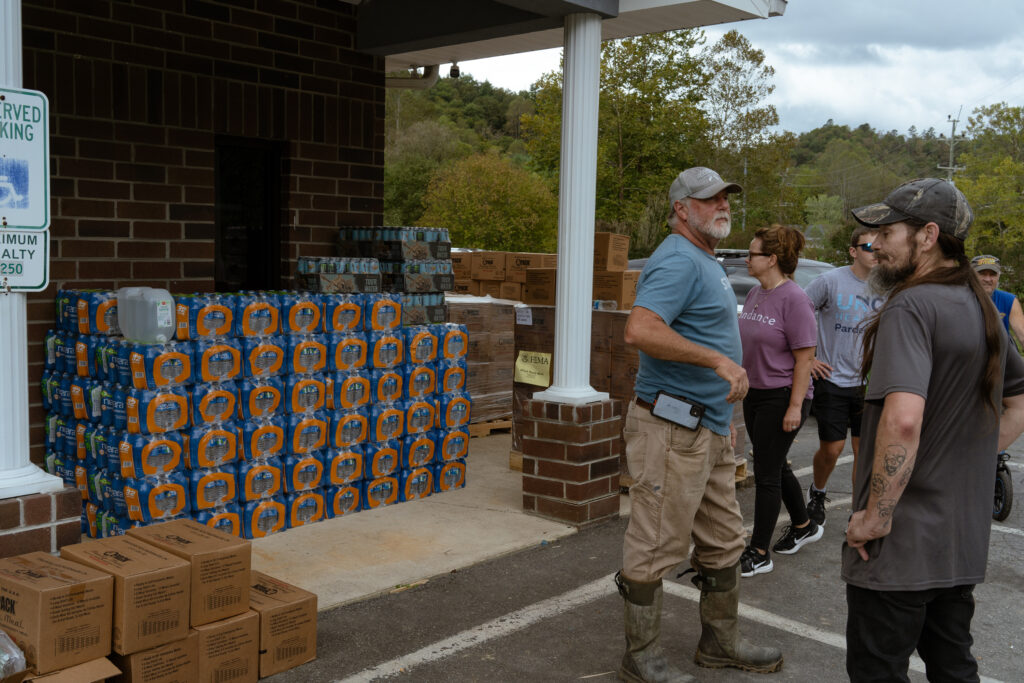
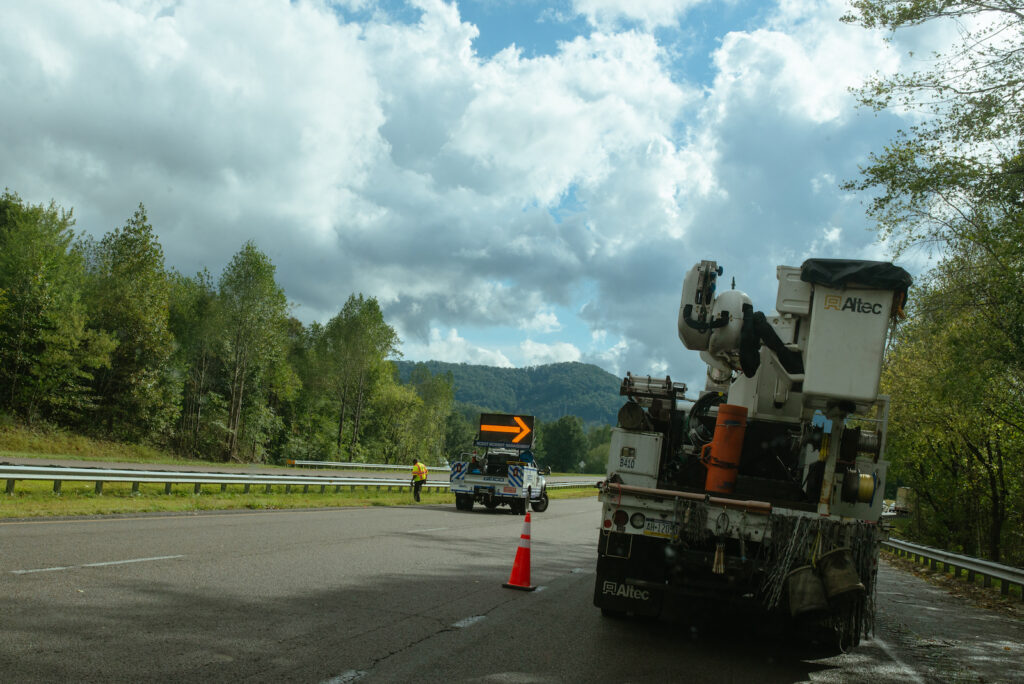
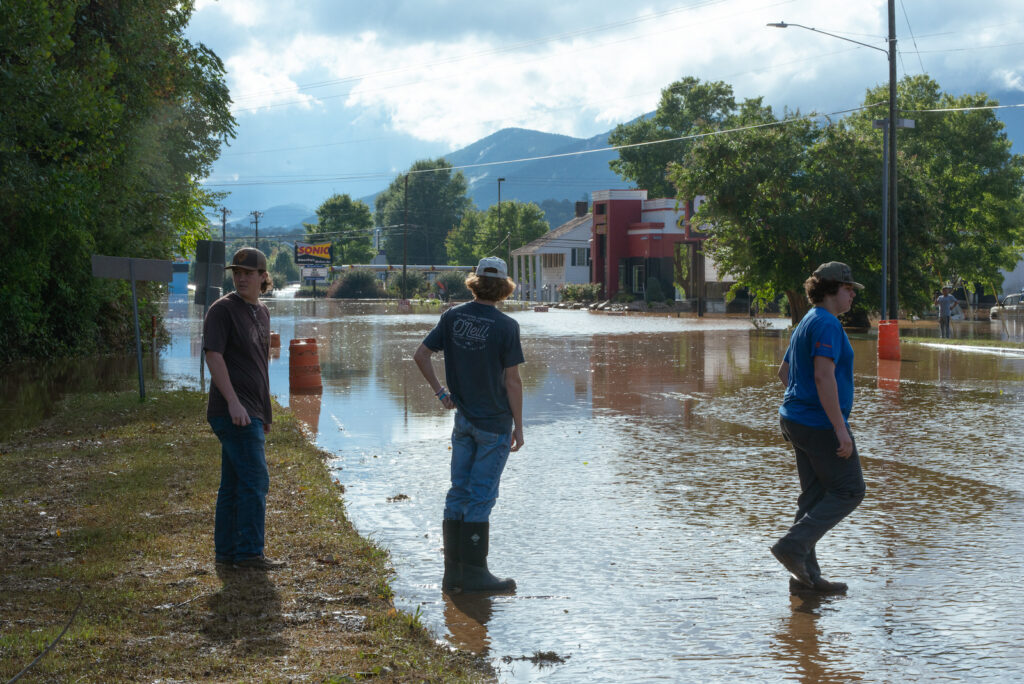

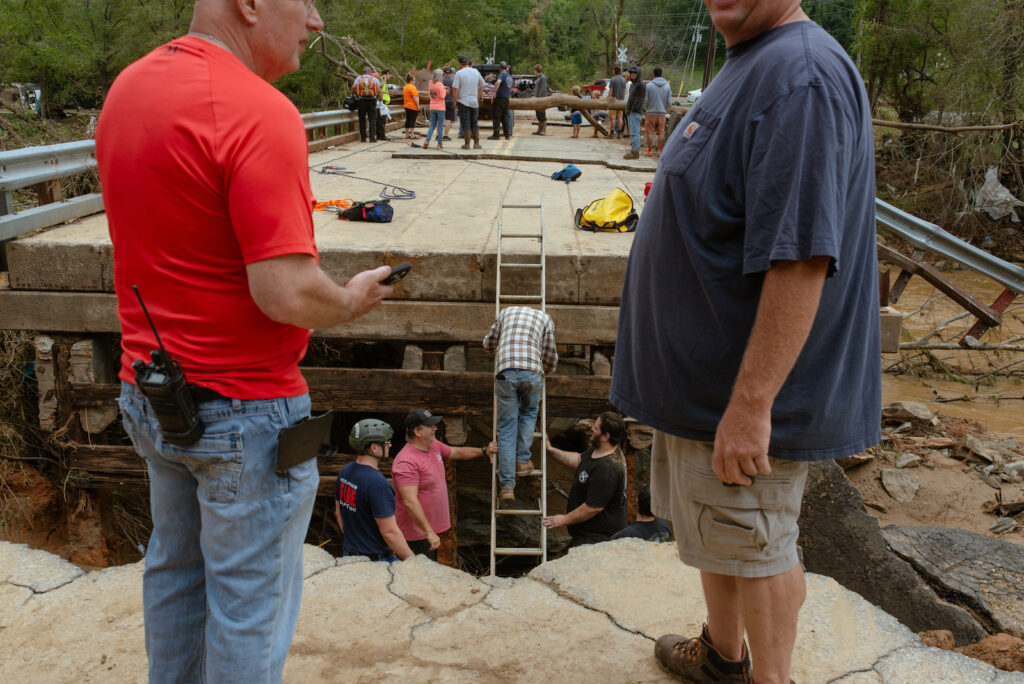
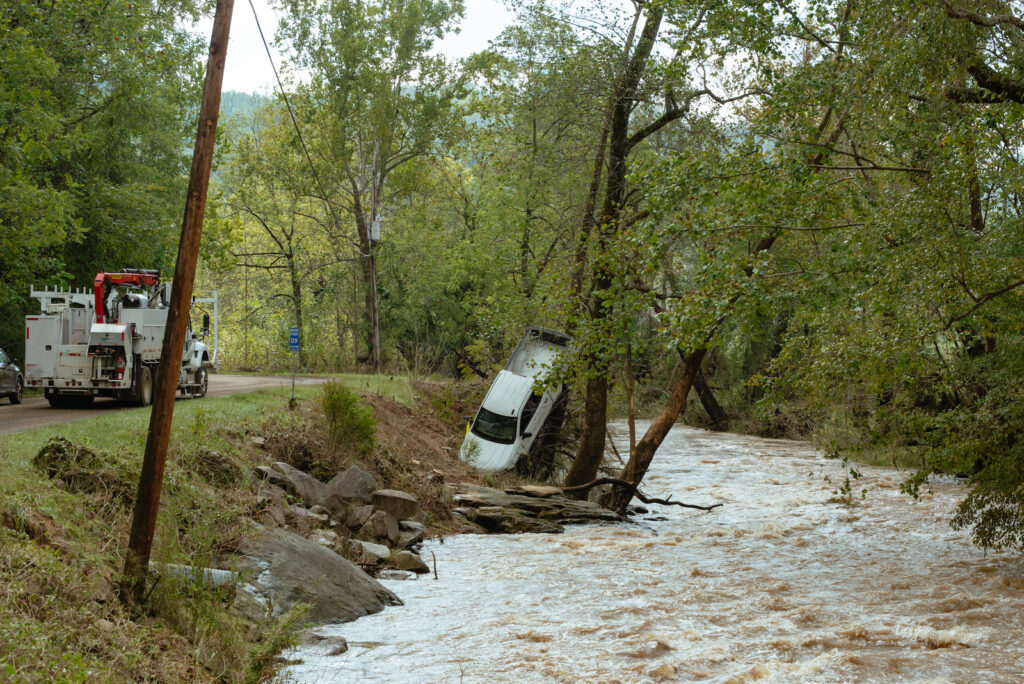
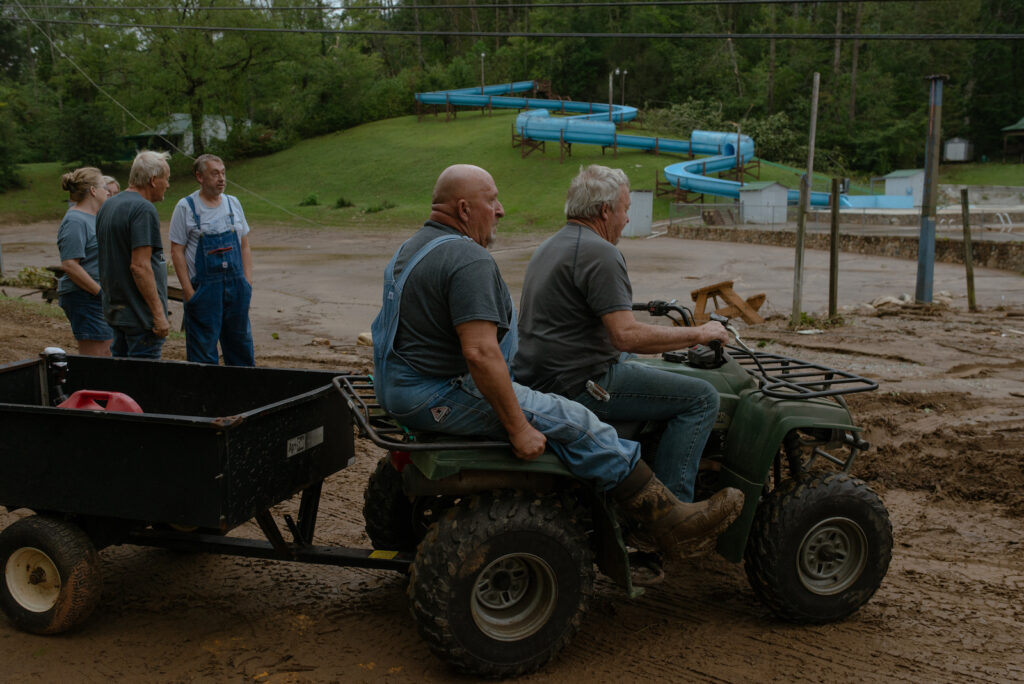
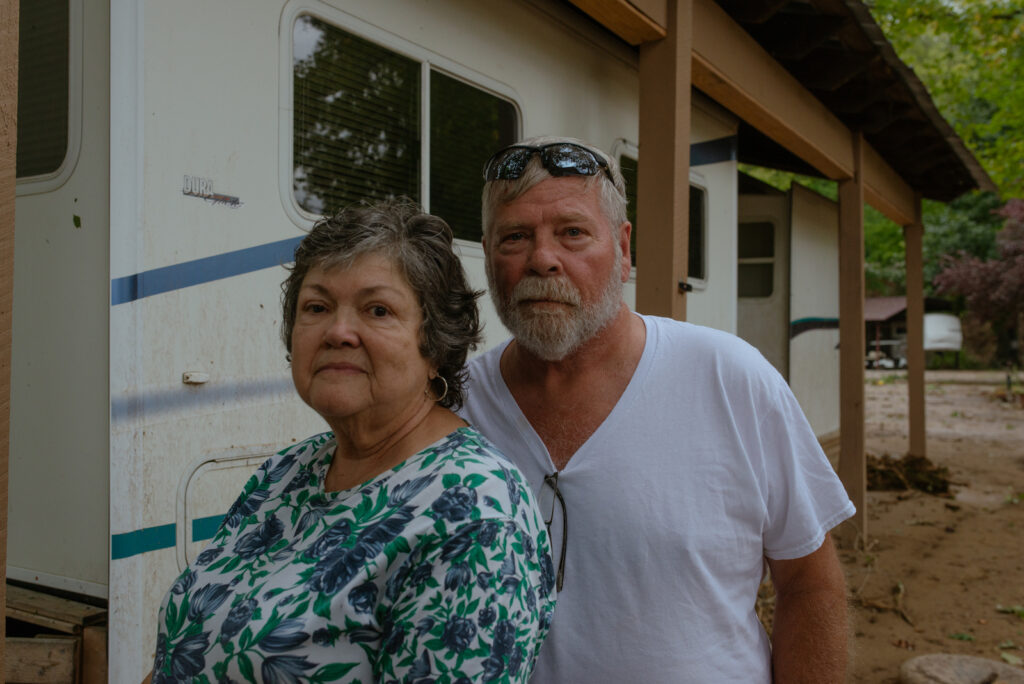
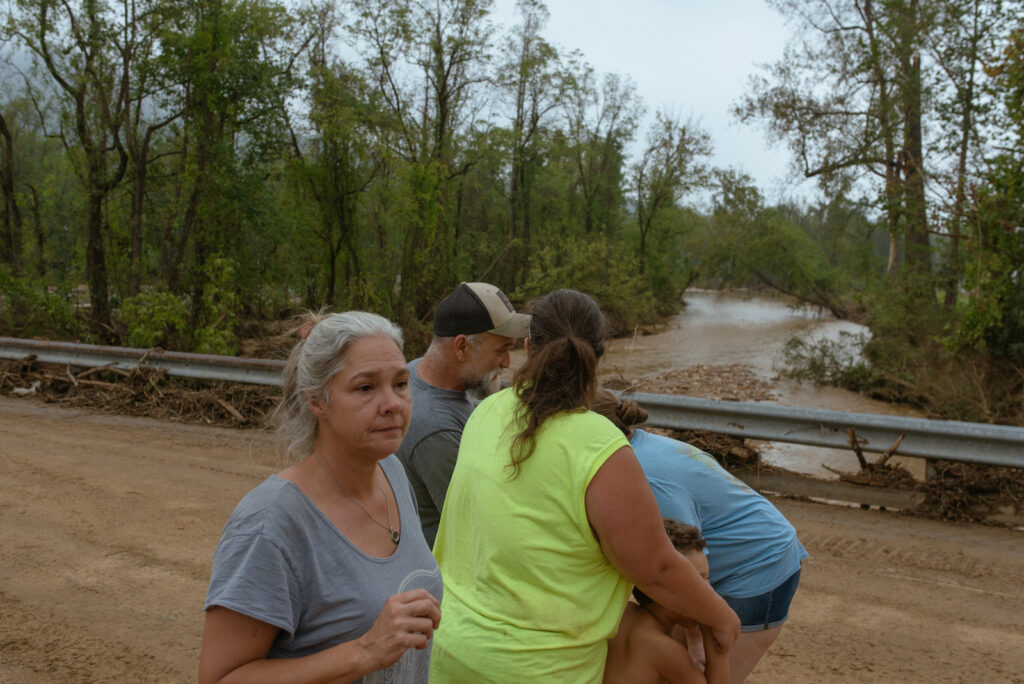

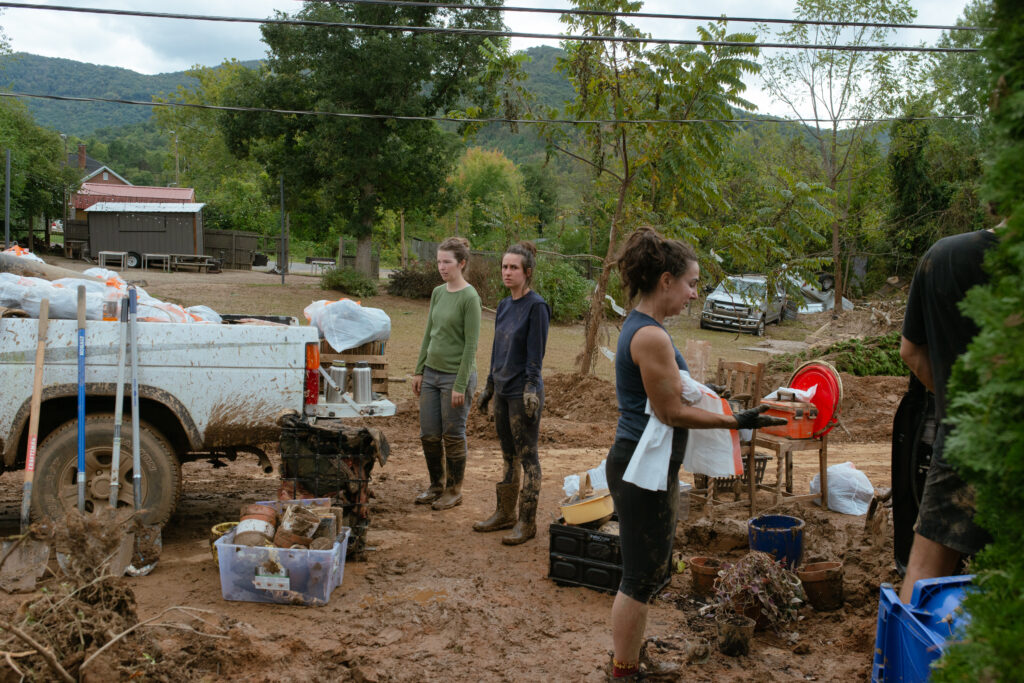


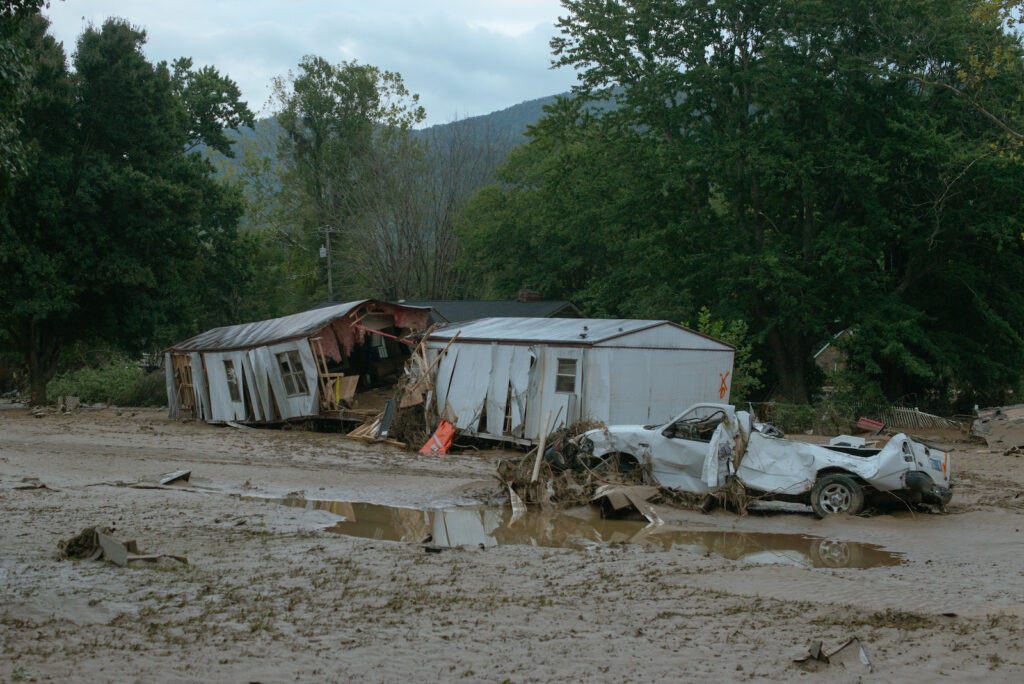
Jesse Barber is a documentary photographer based in the Appalachian region of North Carolina. His work focuses on the culture of rural communities and the influence of traditional values, such as those related to labor and religion. Raised in the rural South, Barber has an understanding of the nuanced perspective in small communities, and he seeks to expand our understanding of how religion, labor, and history intersect with the land today. More of his work can be found on his website: www.jesse-barber.com.
Header image: Coxe road in Rutherford County, North Carolina, with leaves showing the water line.

